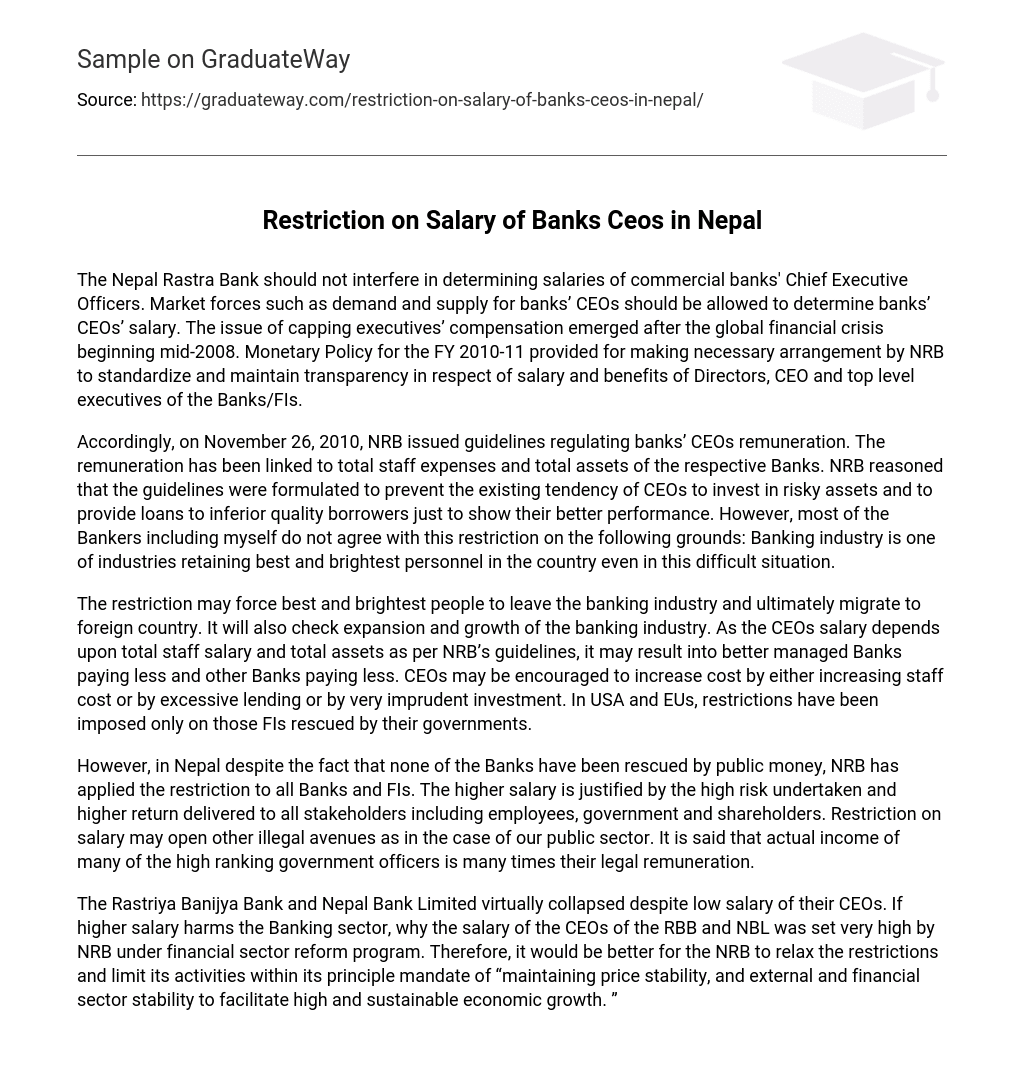The Nepal Rastra Bank should refrain from intervening in the determination of salaries for Chief Executive Officers of commercial banks. It is important to allow market forces, such as demand and supply for banks’ CEOs, to determine their salaries. The topic of limiting executives’ compensation arose in response to the global financial crisis that started in mid-2008. The Monetary Policy for the fiscal year 2010-11 mandated the Nepal Rastra Bank to establish appropriate measures to standardize and ensure transparency in the salaries and benefits of Directors, CEOs, and top-level executives in Banks/FIs.
NRB issued guidelines on November 26, 2010, to regulate the remuneration of banks’ CEOs. These guidelines tie the remuneration to the total staff expenses and total assets of the banks. The rationale behind these guidelines, according to NRB, is to prevent CEOs from investing in risky assets and providing loans to low-quality borrowers solely for the purpose of showcasing better performance. However, many bankers, including myself, disagree with this restriction for the following reasons: The banking industry continues to attract and retain talented individuals, even in challenging times.
The banking industry’s limitation on CEO salaries may lead to the departure of highly skilled and talented individuals from the sector, potentially relocating to foreign countries. This could hinder the overall growth and development of the industry. Moreover, guidelines from the NRB (Nepal Rastra Bank) state that CEO salaries are determined based on total staff salary and total assets. Consequently, banks with superior management might offer lower compensation while others provide higher pay. As a result, CEOs may be incentivized to increase costs through higher staff salaries, excessive lending, or imprudent investments. It is important to note that these restrictions only apply to financial institutions in the United States and European Union that have received government rescue.
Despite the absence of public funds being used to rescue any Banks in Nepal, the NRB has imposed salary restrictions on all Banks and FIs. The rationale behind higher salaries is the level of risk taken and the higher returns provided to all stakeholders, which includes employees, government, and shareholders. Imposing restrictions on salary may result in the creation of illegal alternatives, as witnessed in our public sector. There are reports indicating that the actual income of numerous high-ranking government officials exceeds their legal remuneration by a substantial amount.
Despite their CEOs receiving low salaries, the Rastriya Banijya Bank and Nepal Bank Limited have virtually collapsed. This raises the question of why the salaries of these CEOs were set so high by the NRB under the financial sector reform program, if higher salaries are detrimental to the banking sector. In order to promote high and sustainable economic growth, it would be ideal for the NRB to relax restrictions and focus its activities on maintaining price stability, as well as external and financial sector stability.





